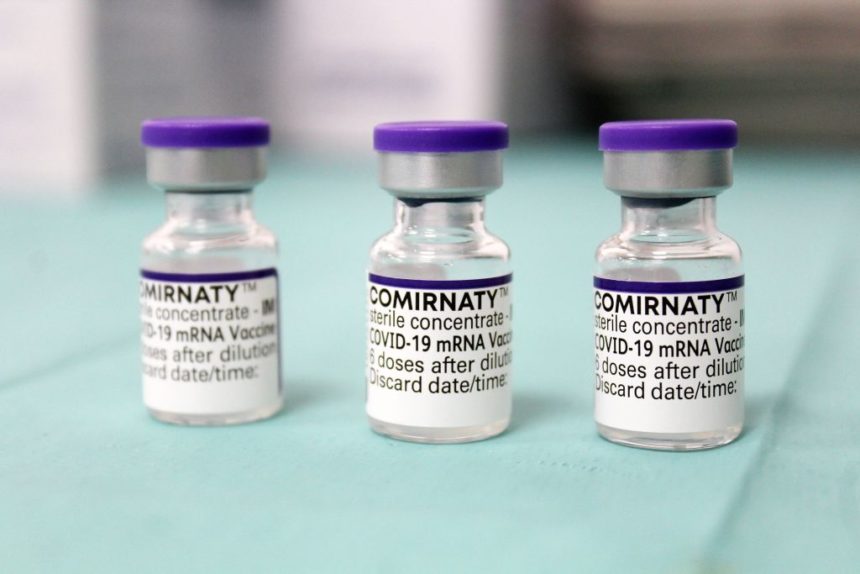When the Food and Drug Administration fully approved the Pfizer-BioNTech vaccine earlier this week, the company was quick to roll out its new brand name: Comirnaty. But whether that moniker will eventually capture the public’s imagination — or whether it will forever be known as “the Pfizer vaccine” — is anyone’s guess, marketing and communications pros said.
Carly Kuper, SVP of public relations and corporate communications at CMI Media Group, characterized the situation as “a first. I honestly can’t think of a time that there was a medication coming out when so many people knew about it before it received full approval. So this is truly new territory.”
Pfizer first unveiled the name Comirnaty some nine months ago. In a December 2020 press release, Pfizer noted that it was envisioned as a combination of several different words. “Co” refers to COVID-19, “mirna” to its status as the first authorized messenger RNA (mRNA) vaccine, and “ty” to the notion of community.
The name, then, is intended to evoke a sense of unity around the vaccine, as well as to nod to the industry’s historic achievement in developing a vaccine so quickly.
“I don’t know if this is intentional or not, but the ending of the name sort of sounds like the ending of ‘humanity,’” Kuper said. “And this being such an important vaccine truly touching all of humanity, that was pretty serendipitous that it has that kind of ending.”
Comirnaty isn’t the only new brand name generating buzz, whether positive or negative. The Moderna vaccine has been dubbed “Spikevax,” which suggests a different sentiment.
Up until now, of course, the vaccines have been known as the “Pfizer shot” or “Moderna shot.” That tight association to the broader corporate brand could itself boost the companies’ reputations.
“Their one branding challenge, which isn’t necessarily a bad challenge, is that everyone knows it as the Pfizer vaccine,” Kuper said. “It’s very likely that, until the end of time, people may still continue calling it the Pfizer vaccine. That’s not necessarily a bad thing.”
“I do think This was the first time that branding had to be done in this out-of-order way. So for brand nerds, it will be really interesting to see what becomes of it,” Kuper continued.
Ultimately, whether names like Comirnaty or Spikevax will stick isn’t as important as the thinking behind the new branding, according to Klick Health SVP for policy and advocacy David Bowen.
“The trade name Comirnaty is really important not because of the specifics of this particular name, but because of what it denotes,” Bowen explained. “It denotes that this vaccine has now gone through the full FDA review process.”
In other words, it signifies an established sense of legitimacy that, Bowen hopes, will help boost vaccine confidence within certain pockets of the vaccine-hesitant population.
“If you look at the data about why people are hesitant to take vaccines, there are a range of feelings, but one of them was, ‘Oh, it hasn’t gone through proper review.’ Another was ‘it was rushed through review, I don’t really trust it,’” Bowen said. “If you think about vaccine hesitancy as a wall, this maybe knocks out one or two bricks in that wall — and every time you knock out a brick in that wall, that’s a service to public health. So I think it’s a big deal because it helps people have just a bit more confidence in the process.”








